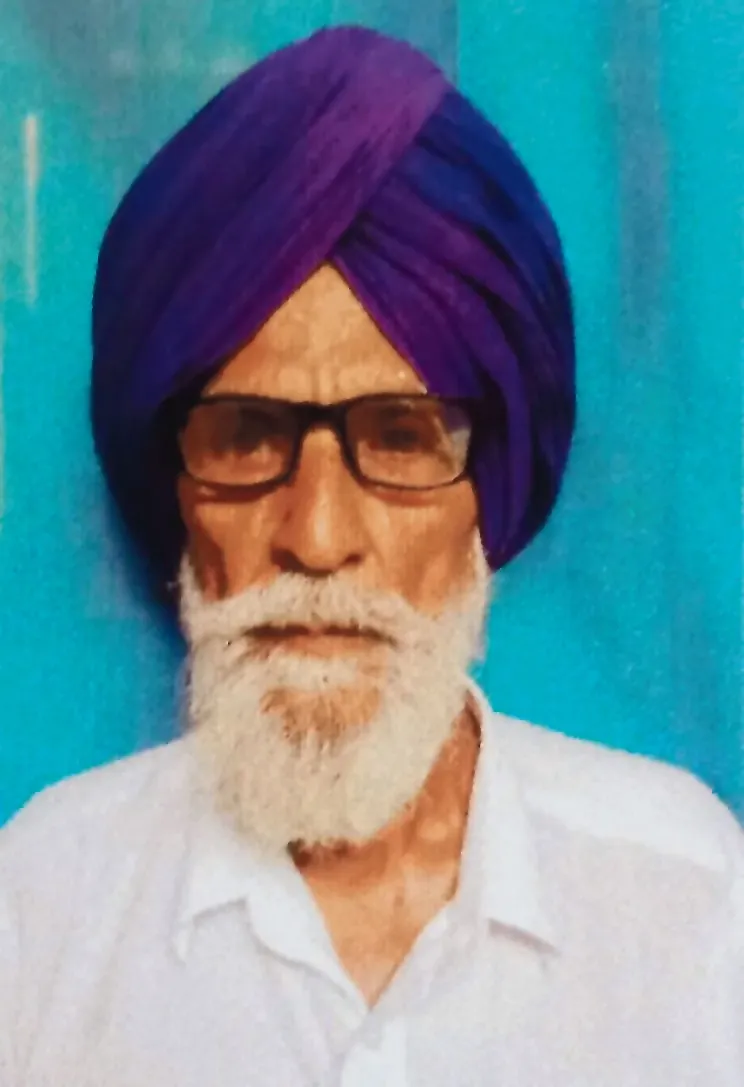Dr. Charanjit Kaur Brar
Darshan Singh Awara is a forgotten co-author of Punjabi literature. He composed in about half a dozen literary forms, but was most famous as a poet. What did the poem say? His heartfelt sentiments continued to touch the hearts of the audience and the packed pandals continued to applaud in long applause.
Darshan Singh Awara was born on 30 December 1906 to Bhai Atar Singh at village Kala Gujran, district Jhelum. His family had religious interests and sense of service. The Bir of Sri Guru Granth Sahib was present in the house. His family was famous with ‘Bhai’ Al. Therefore, he inherited a special inclination towards religion. His grandfather was a devout Nitnemi Sikh, who used to go to Dharamshala with vows and recite Sukhmani Sahib.
Darshan Singh Awara did not know how to read Gurmukhi. When he was young, he started going to the village Dharamshala, but the brother there was very strict. While reading, one day Darshan Singh misread a letter. Bhai Sahib took the pad of the same and gave two four tikas. What happened then, Darshan Singh was so afraid that he did not go to study Gurmukhi again. However, Urdu was more popular in those days.
Darshan Singh Awara passed 10th from Khalsa High School Gujranwala in 1923 AD. From the time of studying in school, he had a penchant for writing poetry. In those days the Singh Sabha movement was strong. A separate Gurudwara of the Singh Sabha movement was established. Every day some group comes and chants Gurbani. After seeing it, fondness arose in his heart and he drank the nectar. Darshan Singh Awara, dressed in Khadar dress, black turban and long gatra, used to come to the Akali stages and enthrall the audience by reciting passionate poems. remained
Darshan Singh Awara’s native occupation was Bajaji’s shopkeeping. He also started working with his father. After the creation of Pakistan, this shop was first started in Delhi and then in Patiala, but it was not very successful. Finally, leaving this occupation, he took up service as a Research Assistant in the Department of Languages. Then he got very busy in literary activities.
Darshan Singh Awara started his literary journey as a poet and also penned other forms of literature. He wrote eight poetry collections ‘Bijli Di Kadak’ (1924), ‘Bagawat’ (1940), ‘Main Baaghi Hain’ (1941), ‘Inqlab Da Rah’, ‘Gustakhiyan’ (1952), Halchal’ (1952), ‘Chotan’ (1972) and ‘Awargis’. Apart from this, there are two novels ‘Swarg Narak’ and ‘Pardesi Sajjan Aye’ and a collection of stories. He also contributed to writing children’s literature and translated some works into Punjabi. Also prepared idiom dictionary.
Darshan Singh Awara’s first collection of poetry ‘Bijli di Kardak’ was published and confiscated by the government. The author’s name Darshan Singh Diljit has been published on this book. In this collection, looking at the bloody apocalypse of Jallianwale Bagh and other atrocities committed by the British, the aim of the poems was to paint the nation in a revolutionary color. He writes:
While the field shot,
Don’t let your heart sink when you see death.
Go forward like lions,
Don’t leave your feet behind, a mole of yours.
His second poetry collection Bagawat was published in four editions (three Punjabi and one Urdu) at that time. This was no small achievement in those days. In this collection, he comes in front of the readers with his new form. His poems Revolt, Rabb Bande Ko, Banda Bande Ko, Rabb Baghi Ko etc. sowed the seeds of rebellion in the religious field. He writes:
Don’t be afraid to hold garlands,
Read the Gita on a daily basis.
Do not sit idle and pray,
Of the hands of those who are tired
God listens
Don’t cry to fate,
Some shake hands and feet
Look at their courage
Those who took the sand blossomed.
In ‘Main Baaghi Hain’, the poet warns the general public and awakens them from their deep sleep. He would encourage the abandonment of superstitions, avoidance of unnecessary rituals; Criticizing political slavery, economic poverty, religious and personal moral decline, he writes in his revolutionary tone:
Need those foreheads,
Those who do not bow down to the yoke.
need those feet,
Adversaries that do not stop.
There is a need for blood that,
Not frozen in the veins.
Need that storm which,
Do not stop to see the mountain.
Darshan Singh was a wandering reformist and revolutionary writer. He openly contradicted the religious and social stereotypes and opened the polls by sating the contractors of society and religion.
On December 10, 1982, at the age of 66, this poet, who left an indelible mark on Punjabi poetry, left the world. I could not find information about any of his works being included in the curriculum of schools and universities. It is not a good idea to forget the writers whose works have enriched Punjabi literature.
* Assistant Professor, Department of Punjabi, Chaudhary Devi Lal University, Sirsa.
Contact: 98784-47758

